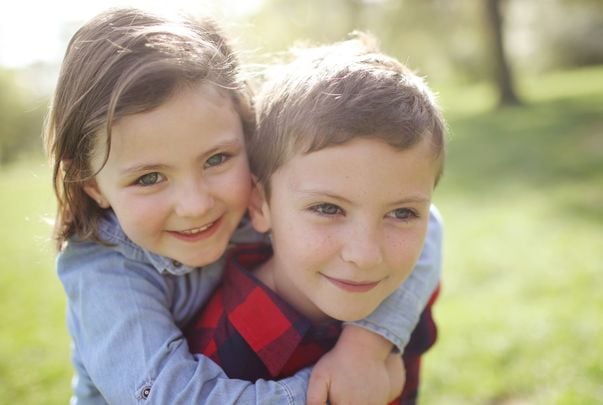Strictly speaking, 'Irish twins' are only those siblings born within 12 months (or less) of each other.
The phrase originates from the United States and Britain in the 19th century and was a disparaging term used to describe siblings from large, and mostly poor, Irish immigrant families.
Back then, it was common for families to have children in quick succession as most families adhered strictly to the Church’s teaching on contraception.
When someone mentioned ‘Irish twins’ it usually implied that the family was Catholic and also hinted that the user thought their typically large families were impractical and that they should start using contraception.
Do people still find the term offensive? The internet suggests so.
@SavannahGuthrie nasty and unnecessary comment about J.S's babies being "Irish twins" this a.m. Originally meant and remains offensive.
— JoAnn Taylor (@mollypitcher2) December 26, 2012
How @FoodNetwork can let the loaded, offensive phrase "Irish Twins" on television is beyond me. #boycott #FoodNetworkStar
— LawSchool$uccess (@SpecterProf) July 18, 2016
@InfieldSingle Heh. Around here, siblings born within a year of each other are sometimes called Irish twins. Offensive, but colorful.
— Colleen Barry (@CopyCurmudgeon) August 17, 2011
Although not everyone is so sure.
Even that whole "Irish twins" thing isn't offensive anymore, now people say it like it's cute.
— Billie Jean Davy (@ScreamQueenMom) March 11, 2014
As Irish Catholics have increasingly begun to disregard Catholic Church teaching regarding family planning and families sizes have plummeted as a result the use of the phrase has declined, although as the tweets above show it still provokes a strong reaction among sections of the diaspora.
While some people may use the term "Irish twins" in a harmless manner, others find it to be offensive. The term can be seen as derogatory and perpetuates stereotypes about Irish people having large families and not using birth control.
Additionally, the term can be hurtful to families who have children born close together. Parents may feel that their children are being unfairly labeled or that their parenting choices are being criticized.
It's important to remember that all families are different, and there is no right or wrong way to space out children. Some families choose to have children close together, while others prefer to have more space between their children. It's important to respect each family's decision and not make assumptions based on the number or spacing of their children.
* Originally published in June 2017. Updated in April 2023.




Comments